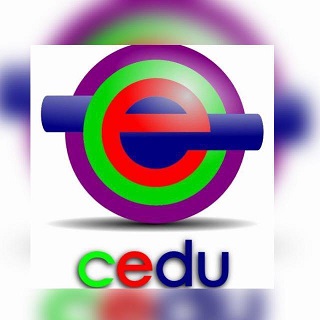ALTERITY AND THE DECOLONIAL: REFLECTIONS AND PROPOSALS ON THE TEACHING OF HISTORY IN THE EARLY YEARS OF ELEMENTARY SCHOOL
Keywords:
Human Rights and Education, Elementary Education, Teaching History, Education for DiversityAbstract
The present text aims to focus on the curricular component of History in the early years of Elementary School as placed in the legal horizon in relation to a critical position on their conceptions about the idea of diversity. To do so, it seeks an overview from multiculturalism to decolonial proposals as a way to resize the relationships (and definitions) between the “I” and the “Other”. In this way, it is based on the epistemological dimension of the question: the recognition of alterity not only as a subject, but also as an enunciator of certain knowledge. Therefore, it focuses on the reflection on the rupture of Cartesian ontological dualism as proposed by Enrique Dussel and on the indication of a critical interculturality put by Catherine Walsh as the basis of a Decolonial Pedagogy. Finally, it presents a practical possibility of action according to such concerns, based on the work of Renato Noguera.
Downloads
References
BLOOM, B. S. et al. Taxonomy of educational objectives. Nova Iorque: David Mckay, 1956.
BRASIL, Secretaria de Educação Fundamental. Parâmetros Curriculares Nacionais: história, geografia. Brasília: MEC/SEF, 1997.
BRASIL. Base Nacional Comum Curricular. Brasília: MEC, 2017.
DUSSEL, Enrique. “Meditaciones cartesianas: sobre el origen del anti-discurso filosófico de la modernidad”. Tabula Rasa. Bogotá, n. 9, p. 155-197, jul/dez 2008.
DUSSEL, Enrique. Transmodernidade e interculturalidade: interpretação a partir da filosofia da libertação. Revista Sociedade e Estado. v. 31, n. 1, p. 51-73, jan/abr 2016.
GONTIJO, Rebeca. Identidade Nacional e ensino de história: a diversidade como “patrimônio sociocultural”. In: ABREU, M.; SOIHET, R. (org) Ensino de História: conceitos, temáticas e metodologia. 2ª ed. Rio de Janeiro: Casa da Palavra, 2009. p. 54-73.
GOUGES, Olympe de. Oeuvres. Paris: Mercure de France, 1986.
GROSFOGUEL, Ramón. “Racismo/sexismo epistémico, universidades occidentalizadas y los cuatro genocídios/epistemicidios del largo siglo XVI”. Tabula Rasa. Bogotá, n. 19, p. 33-58, jul/dez 2013.
HALL, Stuart. A identidade cultural na pós-modernidade. 11ª ed. Rio de Janeiro: DP&A, 2006.
HUNT, L. A invenção dos direitos humanos: uma história. São Paulo: Companhia das Letras, 2009.
KOSELLECK, R. Futuro Passado. Para uma semántica de los tiempos históricos. Barcelona: Paidós, 1993.
MAGALHÃES, M. de S. História e cidadania: por que estudar história hoje? In: ABREU, M.; SOIHET, R. (org) Ensino de História: conceitos, temáticas e metodologia. 2ª ed. Rio de Janeiro: Casa da Palavra, 2009. p. 168-181.
NOGUERA, R. Nana & Nilo: Na Cidade Verde. Rio de Janeiro: Chave, 2016.
NUNES, J. A. O resgate da epistemologia. Revista de Ciências Sociais, n. 80, 2008, p. 45-70.
OLIVEIRA, I. de S. R. de. O mal-estar contemporâneo na perspectiva de Charles Taylor. Revista Brasileira de Ciências Sociais. v. 21, n. 60, p. 135-184, 2006.
QUIJANO, Aníbal. “Colonialidade do Poder, Eurocentrismo e América Latina”. In: LANDER, E. (org) A Colonialidade do Saber: eurocentrismo e ciências sociais. Buenos Aires: CLACSO, 2005. p. 107-130.
RICOEUR, P. A memória, a história, o esquecimento. Campinas: Editora da UNICAMP, 2007.
SCOTT, J. W. O enigma da igualdade. Estudos Feministas, v. 13, n. 1, p. 11-30, 2005.
TAYLOR, C. Argumentos filosóficos. São Paulo: Edições Loyola, 2000.
WALDMAN, M. O Baobá na paisagem africana: singularidades de uma conjugação entre natural e artificial. África: Revista do Centro de Estudos Africanos, Número especial, p. 223-236, 2012.
WALSH, C. Interculturalidade crítica e Pedagogia Decolonial: in-surgir, re-existir, re-viver. In: CANDAU, V. M. (org) Educação intercultural na América Latina: entre concepções, tensões e propostas. Rio de Janeiro: 7 Letras, 2009.
WALSH, C. Lo pedagogico y lo decolonial: entretejiendo caminos. In: WALSH, C. (org) Pedagogías decoloniales. Práticas insurgientes de resistir, (re)existir y (re)vivir. Tomo I. Quito: Abya Yala, 2013.
Published
How to Cite
Issue
Section
License
Copyright
The submission of originals to Cenas Educacionais (Educational Scenes - CEDU) implies the transfer, by the authors, of the publication rights. The copyright for the manuscripts published in this journal is the author(s), with CEDU rights over the first publication. Authors(s) may only use the same results in other publications by explicitly indicating CEDU as the means of the original publication.
Creative Commons License
Except where otherwise specified, the terms of a Creative Commons Attribution-ShareAlike 4.0 International License license apply to the material published in this journal, which allows unrestricted use, distribution and reproduction in any medium provided the original publication is correctly cited.






 This work is licensed with a License
This work is licensed with a License 